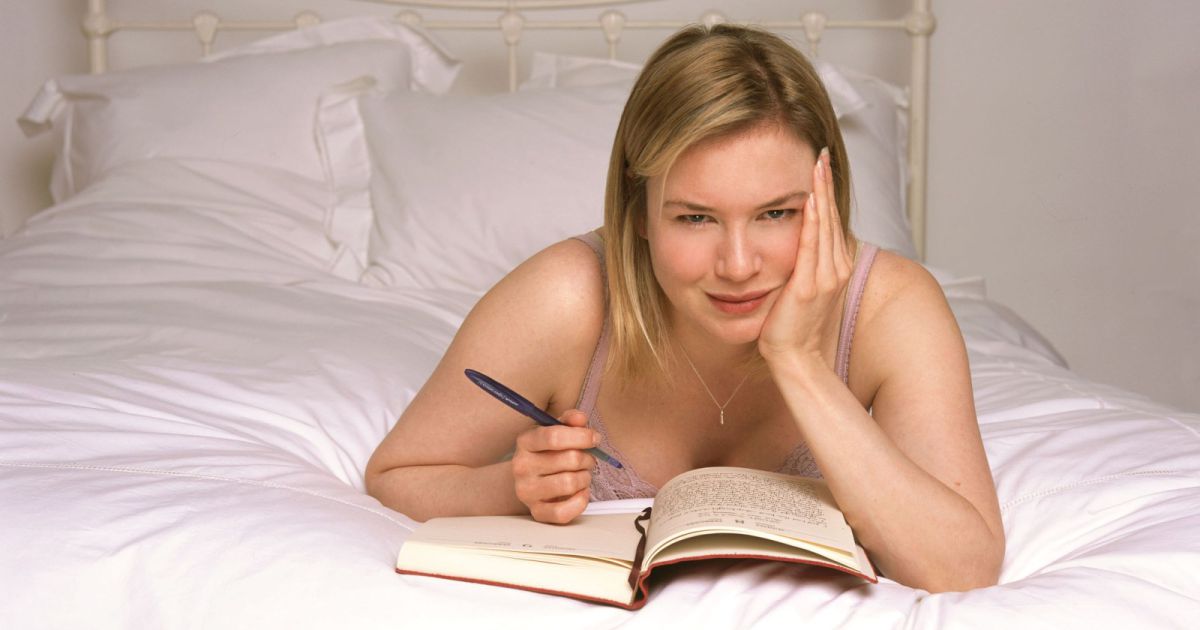Bridget Jones is a character I hate to love. She’s a fictional character who has developed such an aura that she has become a real being. Of course, this also stems from Helen Fielding’s mastery as a social observer, creating a character firmly rooted in contemporary society; but there is something more to Bridget than merely her universality.
From her big knickers (which, we must remember, are not her ‘best pair’), to her obsession with dieting and her love triangle with the ever-so-charming and handsome Mark D’Arcy and Daniel Cleaver, Bridget Jones is an everyday woman. What isn’t relatable? Her concerns in life are surely that of all women: trying to find a man, attempting various diet-fads and when it doesn’t work out, drowning all sadness in tears, wine and Ben and Jerry’s. Simple.
Yes, Bridget is a kind of postfeminist character: she is a single mother, obsessed and open to talk about her libido still existing at (gosh!) the shocking age of 51 and using all the wonders of online dating… providing she has her glasses for her smart phone, that is. She drinks, smokes and leads the life of a single mother. Indeed, all the stereotypical conventions of a single yummy mummy come out in Mad About the Boy: calories are monitored, school-runs become a kind of maniacal battle of middle aged women and life’s happiness is dictated by the next ‘ping’ from social media possibly indicating a new follower – only to be disappointed by the fact it is a mystery account with the slightly disturbing username, ‘@FitWomenRUs’. Is Bridget a twenty-first century liberated woman? Absolutely- well at least in theory.
However, postfeminism does not unfortunately relieve any chances of the creation an antifeminist. What Fielding has actually created is an ultimately pathetic and highly dependent character. Indeed, Bridget is a character whose life is dictated by absence – particularly male absence. So, yes, of course Fielding would ensure the loss of D’Arcy in her final book of the trilogy, Mad About the Boy. The loss of her husband is what guides the novel, leading her to online dating, finding a toy-boy, fending off the sad pervert, Daniel Cleaver – all at the same time of juggling single parenting. She obsesses over men, weight and fashion: all the kind of things on which mags such as Cosmopolitan, Glamour or Woman focus. Ultimately, Bridget is a character of self-indulgence: her popularity stems from such indulgence. Yes, she appeals to our lowest thoughts – be that insecurity about weight, love, or anxieties about modern parenting. She brings out them all. And indeed, Fielding does so in a highly entertaining manner.
So how does Bridget fit with modern day feminism? Have I read all three books? Yes. Do I intend to see the final film? Of course. Bridget Jones can be read, as long as we remind ourselves that Bridget embodies all the stereotypes that may be dangerous to modern day women.
Is it wrong to read, and find enjoyment, from a character involved in such antifeminist discourse? No, as long as it is treated with caution. So yes, indulge yourself in the humour and mastery of Fielding’s social observation, but remember that Ms Jones is a fictional and ultimately antifeminist character, created from a wealth of potentially dangerous stereotypes.
Image: Fusion.net

